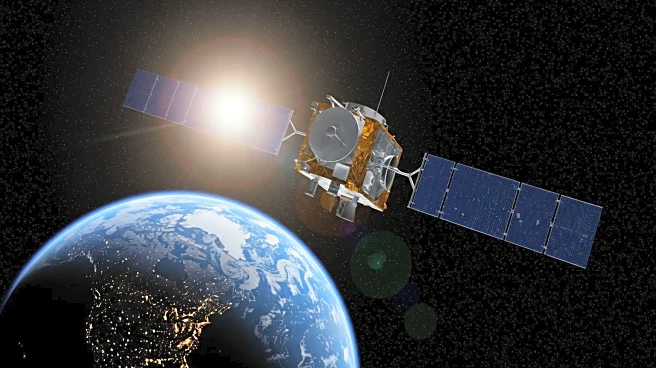What's Happening?
NASA is preparing to decommission satellite missions that collect data on climate change indicators, including planet-warming pollution. This decision is part of the Trump administration's broader efforts to reduce climate science initiatives. The satellites, which have been instrumental in monitoring environmental changes, are set to be destroyed as early as October. This move has sparked concern among scientists and environmentalists who rely on satellite data for research and policy-making.
Why It's Important?
The decommissioning of these satellites could significantly impact climate research and policy development. Satellite data is crucial for understanding climate patterns and informing strategies to mitigate climate change effects. The reduction in available data may hinder efforts to address environmental challenges and could affect international climate agreements. Stakeholders in the scientific community and environmental advocacy groups may face challenges in maintaining accurate climate monitoring and reporting.
What's Next?
The scientific community is likely to respond with calls for alternative data sources or the development of new technologies to fill the gap left by the decommissioned satellites. Environmental groups may increase advocacy efforts to reverse or mitigate the impact of this decision. Policymakers could face pressure to reconsider the administration's stance on climate science funding and support.
Beyond the Headlines
The decision to decommission these satellites raises ethical questions about the prioritization of climate science in government policy. It may also reflect broader political dynamics regarding environmental regulation and the role of science in public policy. Long-term implications could include shifts in international collaboration on climate research and changes in public perception of climate change urgency.









